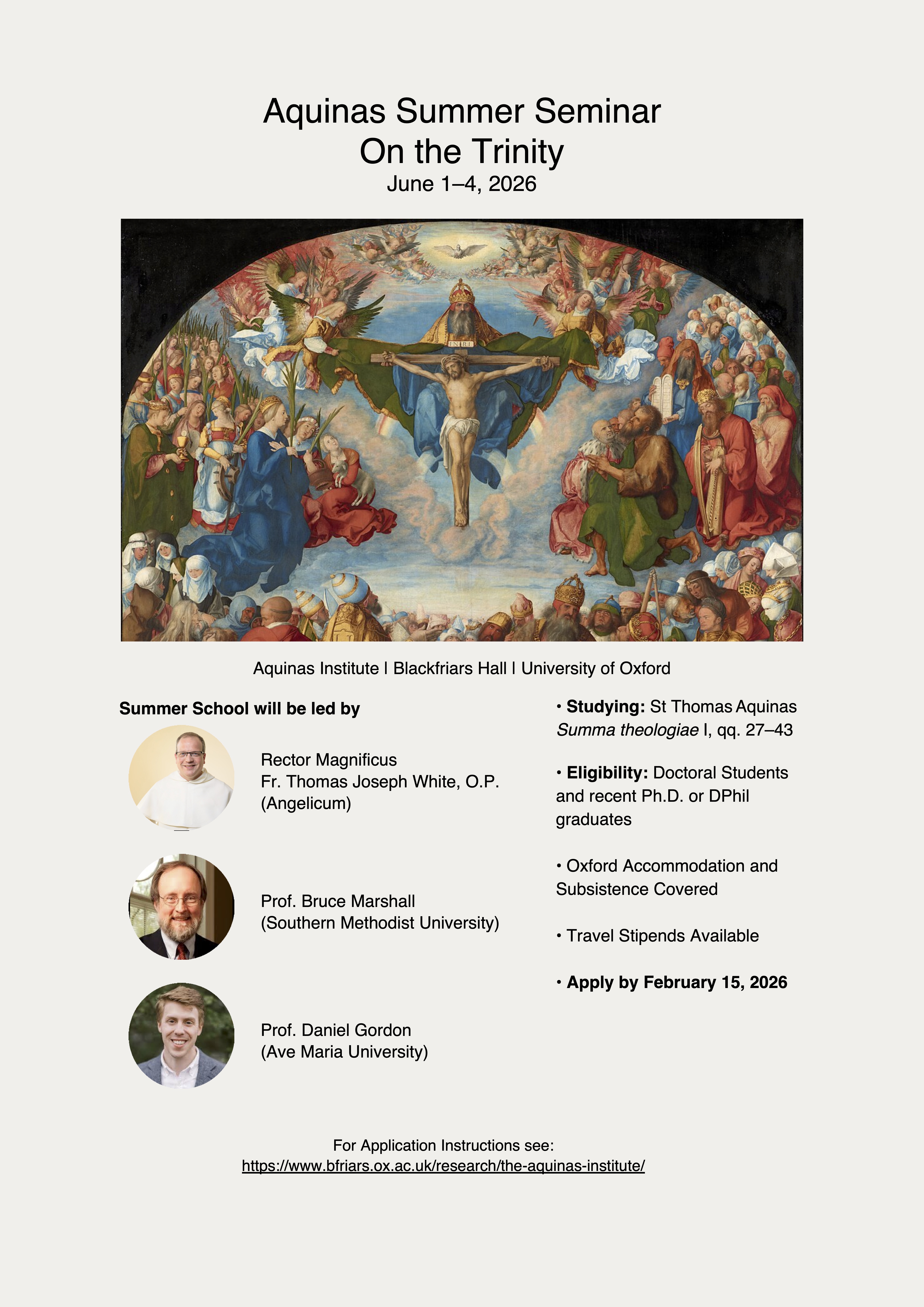Term Card: Hilary Term 2026

AQUINAS SUMMER SEMINAR
Thomas Aquinas on the Trinity (1-4 June 2026)
Doctoral students and recent Ph.D. graduates are invited to apply to the Aquinas Institute’s Aquinas Summer Seminar, which will be held at Blackfriars Hall, University of Oxford, from June 1-4, 2026.
The seminar will focus on St Thomas Aquinas’ Trinitarian theology. More details on the seminar, the senior scholar participants and the application process are available on the event page.
Successful applicants (whether from within the UK or internationally) will have their meals and accommodation covered during their residential stay in Oxford. Travel stipends up to $1000 are also available for participants without institutional support.
CONFERENCE
The Virtues as Sources of Moral Guidance
The Aquinas Institute will be co-sponsoring a two day conference with the Thomistic Institute on the 9-10 March, 2026. It will be held in the Campion Hall Lecture Room. Speakers include: Richard Kim; Fr Nicholas Austin; Daniel De Haan; Roger Teichmann; Terence Irwin; John Cottingham; Gabriele De Anna; Sr Blandine Lagrut; and Roger Pouivet.
More details to follow, please monitor the Aquinas Website for future announcements.
LECTURE SERIES
The Aquinas Institute are running a lecture series this term Thursdays at 5pm, unless otherwise noted, that will present the breadth of Thomistic thought and its applications.
Wk 1 Fr Joseph Laracy (Seton Hall University), ‘Ontological, Anthropological, and Ethical Reflections on Artificial Intelligence in a Thomistic Key’
Wk 2 Liam McDonnell (Blackfriars), ‘On Studying Aquinas in an Aquinas-like Manner’
Wednesday Wk 3 Fr Michael Sherwin OP (Angelicum), ‘Nietzsche or St Thomas: Thoughts on Alasdair MacIntyre’
Wk 5 Jan Bentz (Blackfriars), ‘Aquinas and the Real Distinction: Historical-Philosophical Notes’
Wk 6 Jack Norman (Blackfriars), ‘McCabe’s Social Ontology: Sin, Sacraments, and the New Left’
Wk 8 Fr Richard Conrad OP (Blackfriars), ‘“Faith Believes, nor Questions How”: St Thomas on How (Not) to Understand the Eucharist’